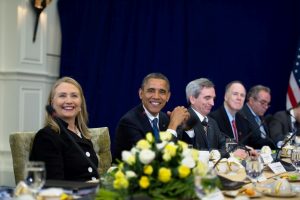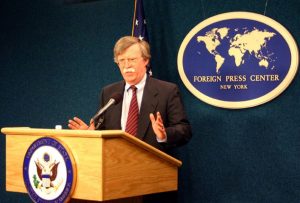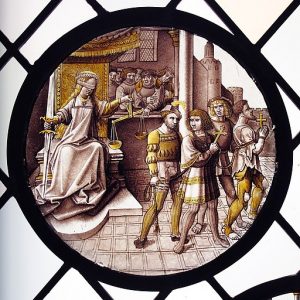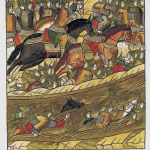When divisions reign between the people, and there are sides, and each side hates the other, things can get very heated. Consider the old truism that the worst feuds are family feuds. Well, here in America, we used to be Americans but now we’re Good Americans and Bad Americans, and, if news media is any indication, we despise each other. Moreover, we have had four straight years of this hatred. I lived through the entire 1960s, but even during that similarly divided time, I never feared for the Republic. Today, people are evoking the Civil War as a comparable period.
Now cynics know that America’s current division does not have to lead to civil strife. Our hatred for each other could be united into hatred for a third party somewhere else — a Russia, for instance, which Americans are accustomed to hating from at least the time of the Bolshevik Revolution, if not before.
What are we talking about here? War, pure and simple. Wars have a unifying effect on the populace. It’s simpler to hate a foreign enemy, exciting even, and there aren’t the moral issues you have to deal with when hating your neighbors. For whatever reason, people tend to fall for it. By people, I mean the press and a significant number of the nation’s citizens. There’s an added benefit for presidents, in the form of another truism: “You can’t criticize the president during wartime.” That was the story they told us with George W. Bush, and it worked!
Using war as a diversion to pacify the people is not a new device. While reading about 16th century essayist Michel de Montaigne, I ran across a surprising example of the unifying effect of a common enemy on a warring populace. Essentially, the France of his day was immersed in a brutal and bloody civil war between the Catholics and the Protestants, filled with massacres and torture and all the rest. It was the definition of internecine strife, and there seemed to be no stopping it. The people warred on for the better part of 30 years.
So what finally ended the killing? Why, a foreign enemy, of course.
Henri IV, a strong king in contrast to the weak monarchs who had preceded him, took the throne of France, after which he promptly started a war with Spain who had been funding an insurgency in parts of France. It was a brilliant move. The Spanish didn’t mind since fighting wars was about all they did in Europe then. Meanwhile, the citizenry were forced to shift their attention to the war effort, as all the men were drafted into the military. With the men out fighting the Spanish, there was no one left to commit atrocities at home, and the civil war that had consumed the country for more than a generation quickly ended.
That makes it all seem very tidy, but really, it must have been horrible to live in the 1500s. They had their own pandemic (the Plague), extreme division between people, major economic hardship, and weak leadership at the top. Oh wait, that could be today…
Returning to the point, the past is tidy, but the present is always uncertain. While there’s no indication that Biden is going to start a foreign war, we shouldn’t be surprised if he does. After all, his banner is Unity.











